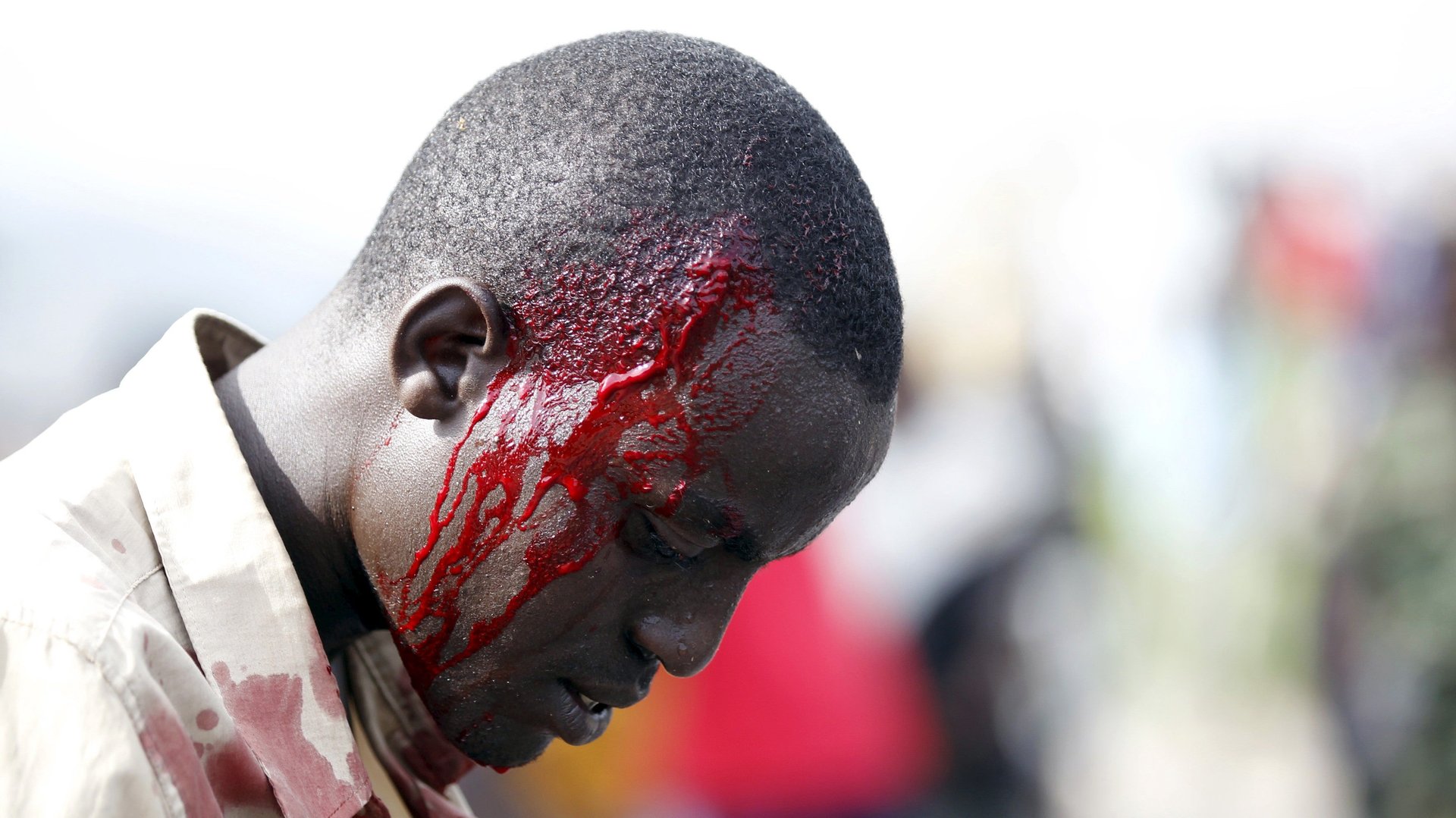At least six have died as Burundi is rocked by violent protests
Burundi’s capital Bujumbara has descended into chaos with anti-government protests entering a third day. Hundreds have been arrested and at least six people have died in clashes with the police, according to the local Red Cross. Burundians are rallying against the country’s president Pierre Nkurunziza, who was nominated by his party to run for office once again on Saturday, April 25. The opposition says a bid for a third term is unconstitutional.


Burundi’s capital Bujumbara has descended into chaos with anti-government protests entering a third day. Hundreds have been arrested and at least six people have died in clashes with the police, according to the local Red Cross. Burundians are rallying against the country’s president Pierre Nkurunziza, who was nominated by his party to run for office once again on Saturday, April 25. The opposition says a bid for a third term is unconstitutional.
Elections in the country are scheduled for June 26, and the president said on Tuesday he would continue his bid despite the protests. Nkurunziza, a former rebel leader, has ruled the country since 2005. His tenure saw a period of stability in the country, which emerged from a brutal, 13-year civil war in 2006. The conflict between the majority Hutus (among them Nkurunziza) and minority Tutsi left 300,000 dead.
“The crisis — though only now making global headlines — was actually several years in the making,” write Jean Claude Nkundwa and Jonathan W. Rosen in The New York Times, (paywall) emphasizing that the ruling party has “worked to tighten its grip on power through violence.”
There are concerns that the protests could spiral into widespread violence once again. Thousands of people have already fled the country, with 20,000 seeking refugee status in neighboring Rwanda, and 4,000 escaping to Congo. Authorities arrested a prominent dissident and shut down an independent radio station.
“If the United Nations, Western donors and the African Union don’t act quickly, and prepare to intervene if necessary, the tension could explode into a full-scale civil war, threatening the stability of Africa’s entire Great Lakes region,” write Nkundwa and Rosen.
UN Secretary General Ban Ki Moon sent his special envoy for the region for consultations, the UN in a statement, in which he urged the authorities to uphold human rights and exercise restraint in the use of force.
“The Secretary-General appeals to Burundians to safeguard the hard won gains made in consolidating peace and democracy and urges them to resolve their differences through dialogue. He reiterates the commitment of the United Nations to support peaceful, credible and inclusive elections.”